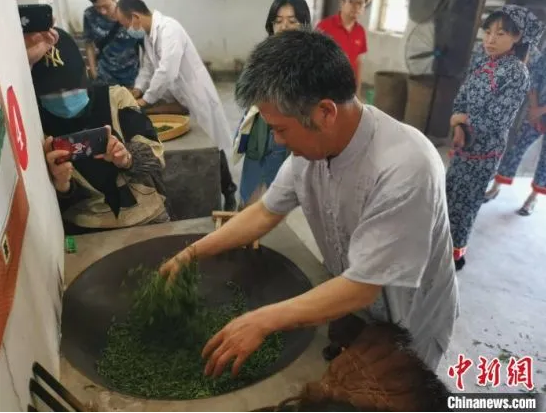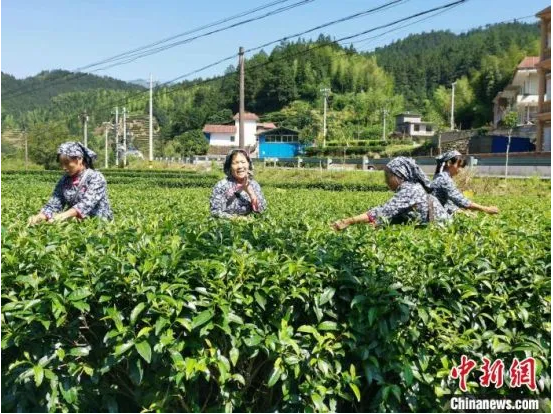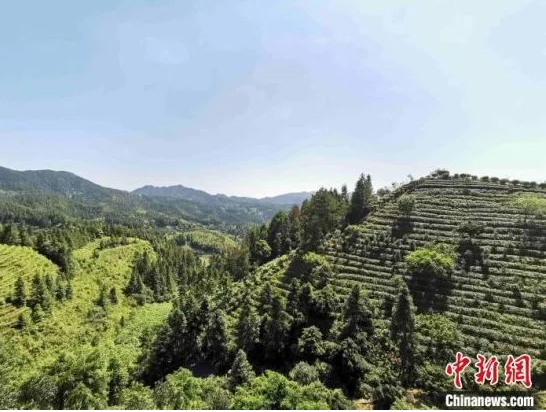Handmade Linglong Tea boosts rural revitalization
“Linglong Tea is made with 12 procedures involved in the processing of fresh tea leaves such as withering, fixing (kill-green) and rolling. It’s ecological, traditional and fragrant,” said Jiang Qiugui, an inheritor of handmade Linglong Tea, an intangible cultural heritage item. In recent years, it has been common that he introduces the characteristics of Linglong Tea to visitors, while showing the traditional hand-made tea technique.

Jiang Qiugui lives in Qingquan Town, Guidong County and his family has grown tea for generations. Now he has a tea garden of more than 250 mu (about 16.7 hectares) of tea planting, which produces more than 1,000 kg of Linglong Tea each year. He started to make tea from 17 years old, and is the third-generation heir of the hand-made tea. In June 2012, the traditional technique of Linglong Tea was included in Hunan’s Intangible Cultural Heritage Protection List, and Jiang Qiugui Tea Factory has also become an inheritance base, attracting many tourists every year to pick tea leaves, make hand-made tea and take other leisure activities.
Qingquan Town is famous for its Linglong Tea and kumquats. It is known as a “famous tea town and hometown of kumquat”. It has a tea planting history of more than 300 years since the end of Ming Dynasty. Linglong Group of Xiadan Community in Qingquan Town is the origin of “Linglong Tea”, a China Famous Brand.

In recent years, Guidong County has taken Linglong Tea as a leading industry to help get rid of poverty and build a prosperous county, and expanded the tea industry to be a characteristic pillar industry for the local people to increase income.
Among the mountains of Qingquan Town, the 100,000-mu (nearly 66.7 square kilometers) tea garden is covered with clouds and mist. In the tea garden, the hardworking tea farmers are busy picking tea leaves. A 60-year-old tea farmer said, although it’s not the peak period of tea production, she can earn more than 100 yuan via picking tea leaves.
This tea sightseeing garden is a modern agricultural industrial park built in Qingquan Town, integrating tea planting, picking experience and eco-tourism. It has built tea culture wall, sightseeing pavilion, tea picking trails and other infrastructure, and formed a comprehensive scenic spot integrating tea planting, sightseeing and ecological entertainment. After entering the peak production period, the tea farm can provide thousands of jobs for locals near the home. The tea alone can make a tea farmer have an income of over 1,000 yuan per year.

Qingquan Town now has four large tea planting bases with 100,000-mu tea sightseeing garden as the core. The town has tea gardens achieving a total of 40,000 mu (26.7 square kilometers), with an output value of over 100 million yuan. And 92% of farmers are engaged in tea industry in the town. In 2020, the total output of tea in the town was 3 million kg, and the output value of tea was more than 90 million yuan. Relying on the tea industry, the per capita annual income of the town exceeded 10,000 yuan.




